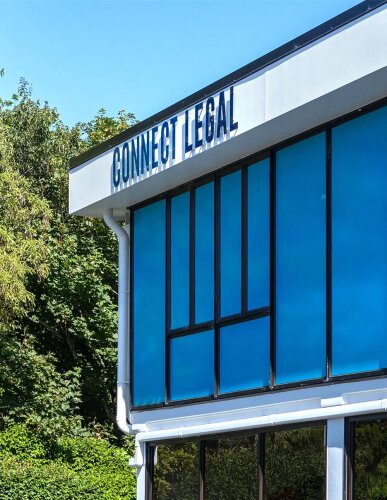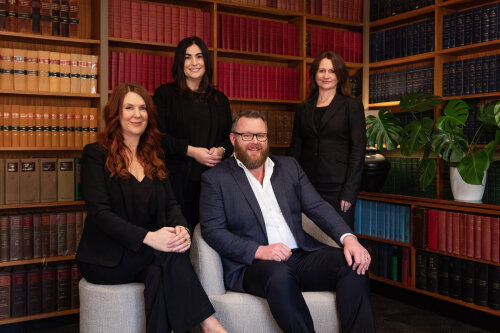Best ADR Mediation & Arbitration Lawyers in New Plymouth
Share your needs with us, get contacted by law firms.
Free. Takes 2 min.
List of the best lawyers in New Plymouth, New Zealand
About ADR Mediation & Arbitration Law in New Plymouth, New Zealand
Alternative Dispute Resolution (ADR) refers to various methods used to resolve disputes outside the traditional court system. In New Plymouth, as throughout New Zealand, the two most common forms of ADR are mediation and arbitration. Mediation is a collaborative process where an impartial mediator helps disputing parties reach a mutually agreeable solution. Arbitration involves an independent arbitrator who listens to both parties and then makes a binding decision. These processes are often favored for their efficiency, privacy, cost-effectiveness, and ability to preserve relationships compared to litigation. Various organizations and professional practitioners in New Plymouth offer ADR services, catering to commercial, family, employment, construction, and other types of disputes.
Why You May Need a Lawyer
Although ADR processes are designed to be less formal and more accessible than court proceedings, engaging a lawyer can have several benefits. Legal professionals can:
- Explain your rights and obligations under New Zealand law
- Help draft or review mediation or arbitration agreements to ensure fairness
- Advise on the suitability of mediation or arbitration for your specific dispute
- Represent you during mediation or arbitration sessions if desired
- Interpret and enforce the outcome of arbitration or mediated agreements
- Assist when there is a power imbalance or complex legal issues involved
Common situations where legal assistance in ADR might be needed include workplace disputes, contractual disagreements, family separation matters, property issues, and community or neighborhood conflicts.
Local Laws Overview
New Plymouth follows New Zealand's national legislative framework for ADR. The key statutes relevant to mediation and arbitration are the Arbitration Act 1996 and the Family Dispute Resolution Act 2013. These laws define how ADR should be conducted, the enforceability of decisions, and the standards for confidentiality and fairness. It is important to note that the Family Court may require mediation before proceeding with court hearings, particularly in parenting and relationship property disputes. Employment matters may also be referred to mediation through the Employment Relations Authority. Private ADR providers in New Plymouth often follow industry best practices and codes of conduct.
Frequently Asked Questions
What is the difference between mediation and arbitration?
Mediation is a process where a neutral third party helps disputants find common ground and reach a voluntary agreement. Arbitration is more formal and involves an arbitrator issuing a binding decision after considering both sides of the dispute.
Are ADR agreements legally binding in New Plymouth?
Mediation agreements can be made legally binding if both parties agree and include them in a formal contract. Arbitration decisions (awards) are binding and enforceable by law under the Arbitration Act 1996.
Do I need a lawyer for mediation or arbitration?
You are not required to have a lawyer but having legal advice can help protect your interests, especially in complex or high-stakes disputes.
How much does ADR cost?
Costs vary depending on the provider, complexity of the dispute, and whether lawyers are involved. Mediation is generally less expensive than arbitration or court litigation.
Is ADR confidential?
Yes, both mediation and arbitration are private processes. Discussions and outcomes are confidential unless the parties agree otherwise or disclosure is required by law.
Can ADR be used for any kind of dispute?
ADR is suitable for most civil disputes, including business, family, property, employment, and community matters. Some criminal and certain regulatory matters may not be eligible.
What happens if we cannot reach an agreement in mediation?
If mediation does not result in a settlement, parties can proceed to arbitration or take the matter to court.
How long does the ADR process take?
Timelines vary, but mediation can often be completed in a day or two, while arbitration may take several weeks or months depending on the case's complexity.
Who chooses the mediator or arbitrator?
Parties usually agree together on the selection of a mediator or arbitrator. If no agreement is reached, the appointment may be made by a professional body or according to the terms of the dispute resolution agreement.
Can I appeal an arbitration decision?
Appeals are generally limited. The Arbitration Act 1996 allows appeals only in limited circumstances, such as serious procedural errors or lack of jurisdiction.
Additional Resources
Here are some useful resources for those seeking ADR information or services in New Plymouth and New Zealand:
- New Zealand Law Society - Information on ADR processes and finding a local lawyer
- Citizens Advice Bureau New Plymouth - General guidance and referrals to mediation or arbitration services
- Family Dispute Resolution (FDR) Providers - Accredited professionals assisting in family-related matters
- Dispute Resolution Centre in Taranaki - Local mediation and arbitration services
- Ministry of Justice - Guides on ADR, court-associated services, and enforcement of decisions
- Arbitrators' and Mediators' Institute of New Zealand (AMINZ) - Industry standards and list of qualified practitioners
Next Steps
If you believe your situation could benefit from mediation or arbitration, consider the following actions:
- Consult with a local lawyer experienced in ADR to discuss your options and rights
- Contact a recognized ADR provider or professional in New Plymouth for an initial discussion
- Gather all relevant documents or evidence related to your dispute
- Reflect on your desired outcome and willingness to compromise
- Ask about fees, timelines, and processes before committing to ADR
- Prepare questions to ask your mediator, arbitrator, or lawyer
A qualified lawyer or ADR professional can help you understand the best way forward according to your unique circumstances, ensuring your interests are properly represented throughout the process.
Lawzana helps you find the best lawyers and law firms in New Plymouth through a curated and pre-screened list of qualified legal professionals. Our platform offers rankings and detailed profiles of attorneys and law firms, allowing you to compare based on practice areas, including ADR Mediation & Arbitration , experience, and client feedback.
Each profile includes a description of the firm's areas of practice, client reviews, team members and partners, year of establishment, spoken languages, office locations, contact information, social media presence, and any published articles or resources. Most firms on our platform speak English and are experienced in both local and international legal matters.
Get a quote from top-rated law firms in New Plymouth, New Zealand — quickly, securely, and without unnecessary hassle.
Disclaimer:
The information provided on this page is for general informational purposes only and does not constitute legal advice. While we strive to ensure the accuracy and relevance of the content, legal information may change over time, and interpretations of the law can vary. You should always consult with a qualified legal professional for advice specific to your situation.
We disclaim all liability for actions taken or not taken based on the content of this page. If you believe any information is incorrect or outdated, please contact us, and we will review and update it where appropriate.











